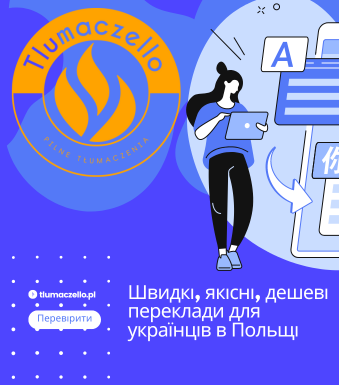The Role of Cultural Exchange Between Poland and Indonesia in the Labor Sector

Poland, facing demographic challenges and labor shortages in various sectors, has increasingly looked towards international labor migration as a solution. Indonesia, with its large and diverse population, presents a significant potential source of skilled and unskilled workers. However, the success of this labor partnership hinges on the effective management of cultural differences and the promotion of genuine cultural exchange. Beyond simple economics, the degree to which Poland embraces and understands Indonesian culture will fundamentally shape the integration and productivity of Indonesian workers, influencing the long-term sustainability of this labor solution. This article will explore the critical role that cultural exchange plays in facilitating a successful and ethical labor relationship between Poland and Indonesia, highlighting the benefits, challenges, and necessary steps for fostering a mutually beneficial partnership.
Cultural Exchange: A Key Tool for Labor Growth in Poland?
Is cultural exchange merely a feel-good initiative, or can it actively contribute to Poland’s labor growth? The answer is a resounding yes. When Polish employers and communities actively engage with Indonesian culture, they create a more welcoming and inclusive environment. This, in turn, leads to increased job satisfaction, reduced turnover rates, and improved productivity among Indonesian workers. Ignoring cultural integration is akin to ignoring a vital resource that can unlock the full potential of the workforce.
Investing in cultural exchange programs—language classes, cultural sensitivity training for employers, and community events showcasing Indonesian traditions—is not just about being polite; it’s about being strategic. A culturally aware workforce is a more efficient and collaborative workforce. Understanding Indonesian customs, values, and communication styles can prevent misunderstandings, foster better working relationships, and ultimately contribute to a more harmonious and productive work environment.
Furthermore, cultural exchange fosters innovation. Bringing diverse perspectives into Polish workplaces can spark new ideas and approaches to problem-solving. Indonesian workers, with their unique backgrounds and experiences, can offer valuable insights that can benefit Polish businesses. By embracing cultural diversity, Poland can not only address its labor shortages but also enhance its competitiveness in the global market.
Indonesian Labor: Can Poland Benefit More from Integration?
Poland’s economic gains from Indonesian labor are undeniable, but are they maximizing the benefits? Simply filling vacant positions is not enough. True benefit lies in genuine integration. If Indonesian workers are treated as mere cogs in the machine, their potential remains untapped. Poland needs to move beyond a transactional relationship and foster a sense of belonging.
Focusing on integration means providing Indonesian workers with opportunities to learn the Polish language, understand Polish culture, and participate in community life. This requires investment in language courses, cultural orientation programs, and resources to support their social integration. When Indonesian workers feel valued and respected, they are more likely to contribute their skills and talents to their fullest potential.
Moreover, integration extends beyond the workplace. Access to adequate housing, healthcare, and education for their families is crucial. Creating support networks and addressing potential discrimination are also essential. A holistic approach to integration ensures that Indonesian workers feel supported and empowered, leading to increased job satisfaction and reduced attrition, ultimately benefiting both the workers and the Polish economy.
Overcoming Cultural Barriers: A Polish-Indonesian Labor Win
Cultural barriers, if left unaddressed, can significantly hinder the success of Polish-Indonesian labor collaborations. Misunderstandings arising from different communication styles, values, and social norms can lead to conflict and decreased productivity. Overcoming these barriers requires a proactive and intentional approach from both sides.
One key strategy is to provide cultural sensitivity training for both Polish employers and Indonesian workers. This training should cover topics such as communication styles, cultural etiquette, religious practices, and social norms. By increasing awareness and understanding, these programs can help prevent misunderstandings and promote empathy.
Furthermore, promoting intercultural dialogue and exchange can foster mutual respect and understanding. Creating opportunities for Polish and Indonesian workers to interact outside of the workplace—through social events, sports activities, or cultural festivals—can help break down stereotypes and build stronger relationships. Ultimately, overcoming cultural barriers is not just about avoiding conflict; it’s about creating a more inclusive and harmonious work environment that benefits everyone.
Ethical Recruitment: A Must for Sustainable Labor Exchange
The long-term viability of Polish-Indonesian labor exchange hinges on ethical recruitment practices. Exploitation, deceptive recruitment fees, and unfair labor contracts undermine the entire system. A race to the bottom, driven by unscrupulous recruiters, damages Poland’s reputation and discourages future partnerships.
Poland must enforce strict regulations and oversight of recruitment agencies to ensure fair and transparent practices. This includes cracking down on illegal recruitment fees, ensuring accurate information about job duties and working conditions, and providing legal protection for Indonesian workers. Failure to do so creates a vulnerable workforce ripe for exploitation.
Furthermore, empowering Indonesian workers with knowledge about their rights and resources is crucial. Providing access to legal aid, language support, and information about Polish labor laws can help them protect themselves from abuse. Ethical recruitment is not just about compliance; it’s about ensuring that Indonesian workers are treated with dignity and respect, fostering a sustainable and mutually beneficial labor relationship.
Fair Wages & Conditions: A Polish-Indonesian Labor Imperative
Exploiting Indonesian workers with low wages and substandard working conditions is not only unethical but also economically shortsighted. While lower labor costs might seem attractive in the short term, they ultimately lead to decreased productivity, high turnover rates, and reputational damage. A race to the bottom benefits no one.
Poland must ensure that Indonesian workers receive fair wages that are commensurate with their skills and experience, and that they are afforded the same rights and protections as Polish workers. This includes access to healthcare, social security, and safe working conditions. Investing in the well-being of Indonesian workers is an investment in the long-term success of the Polish economy.
Moreover, providing opportunities for professional development and skills upgrading can help Indonesian workers increase their earning potential and contribute more effectively to the Polish workforce. This, in turn, benefits both the workers and the Polish economy. Fair wages and working conditions are not just about social justice; they are about creating a sustainable and productive labor force.
Bridging the Gap: Investing in Polish-Indonesian Understanding
The success of Polish-Indonesian labor exchange ultimately depends on bridging the gap between the two cultures through sustained investment in mutual understanding. Piecemeal efforts and superficial gestures are insufficient. A comprehensive and long-term strategy is needed to foster genuine cultural understanding and collaboration.
This requires investment in educational initiatives, such as exchange programs for students and professionals, research collaborations, and cultural centers that promote Polish and Indonesian culture. These initiatives can help to build bridges between the two societies, fostering empathy and understanding.
Furthermore, promoting media coverage that accurately portrays both Polish and Indonesian culture can help to dispel stereotypes and promote a more nuanced understanding. By fostering mutual respect and understanding, Poland and Indonesia can create a stronger and more sustainable partnership that benefits both countries.
The future of the Polish-Indonesian labor relationship hinges on a commitment to cultural exchange, ethical recruitment, fair wages, and genuine integration. Poland stands to gain immensely from the skills and dedication of Indonesian workers, but only if it invests in their well-being and fosters a welcoming and inclusive environment. By prioritizing cultural understanding and ethical practices, Poland can transform what could be a simple labor equation into a mutually beneficial partnership that strengthens both economies and enriches both societies. Failing to do so risks eroding the potential benefits and creating a legacy of exploitation and resentment, ultimately undermining the long-term sustainability of this vital labor connection.











